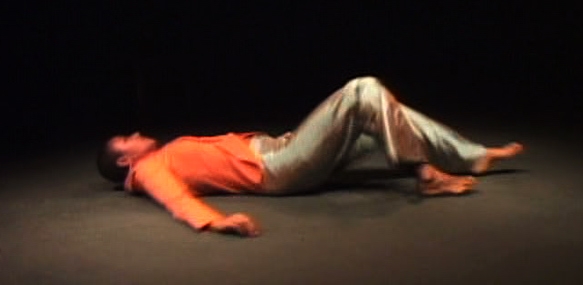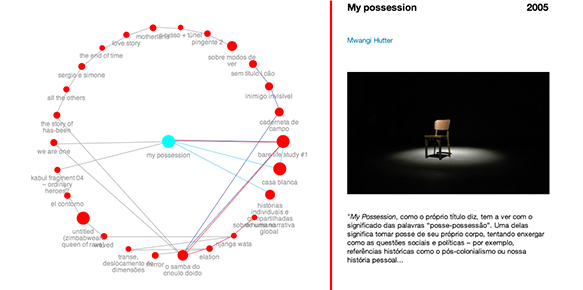Mwangi Hutter
Mwangi Hutter is a duo composed of Ingrid Mwangi and Robert Hutter. This couple of artists respectively born in Kenya and Germany have recently merged their art productions in their quest for a shared worldview. “We are discussing the barriers, the concepts, the constructs that create our identity. We are suggesting that the idea of different genres and personal backgrounds can actually be completely overcome within (...) this unit. We are (...) working as one body, one organism,” they say in PLATFORM:VB.
In their videos, photographs, installations, performances and sculptures, Mwangi Hutter discuss identity and social realities. Their work was shown recently at the National Museum of Women in the Arts (Washington, USA), the Museum für Moderne Kunst (Frankfurt, Germany), and at Museo Nacional Centro de Arte Reina Sofia (Madrid, Spain). Ingrid Mwangi was shortlisted for the 52nd Venice Biennale in 2007, a year in which the event resumed highlighting African artists.
In My Possession (2005), Ingrid Mwangi’s mestizo body, donning trousers and a simple shirt, occupies center stage. The artist sits on a chair and, through minutes of silent self-reflection, seems to be whole. Her introspective attitude reflects her statement published on the catalogue of the 15thFestival (2005), dedicated to performance: “your body is the only thing that belongs to you. This body is yours, as is your personal history, which is also the product of historical influences, the outcome of miscegenation of colonizer and colonized. This body which, being alive where it is and how it is, challenges what is imposed upon it by sexism, racism, views of the exotic or any other prejudice it may stir.” In a text for the Unerasable Memories exhibition book, the critic and researcher Marcos Hill comments on the “subtle tension that progressively arises as stereotypes are deconstructed” in My Possession, and highlights the nullification of eroticism and exoticism in this performance.
The title My Possession can be interpreted both as “what I own” and as “my being possessed.” The mystical aspect of possession takes charge of the performance and overpowers the former sentiment – external forces can tame and dominate this body. Does it really belong to you? The artist claims the performance is cathartic: “the goal was to show that this type of experience – either the strengthening of the self or dictatorship over the self – is a very strong process.”
The video shown in Unerasable Memories is a recording of the performance as presented during the 15th edition of the Festival. Also from a somewhat mystical standpoint, Mwangi Hutter exalts the propagating powers of video, a medium capable of broadening the impact of their performances: “my impact upon the world is being transported by the media. The idea of emanation or extension of the self,” they say to Videobrasil.
Learn more about the artist:


